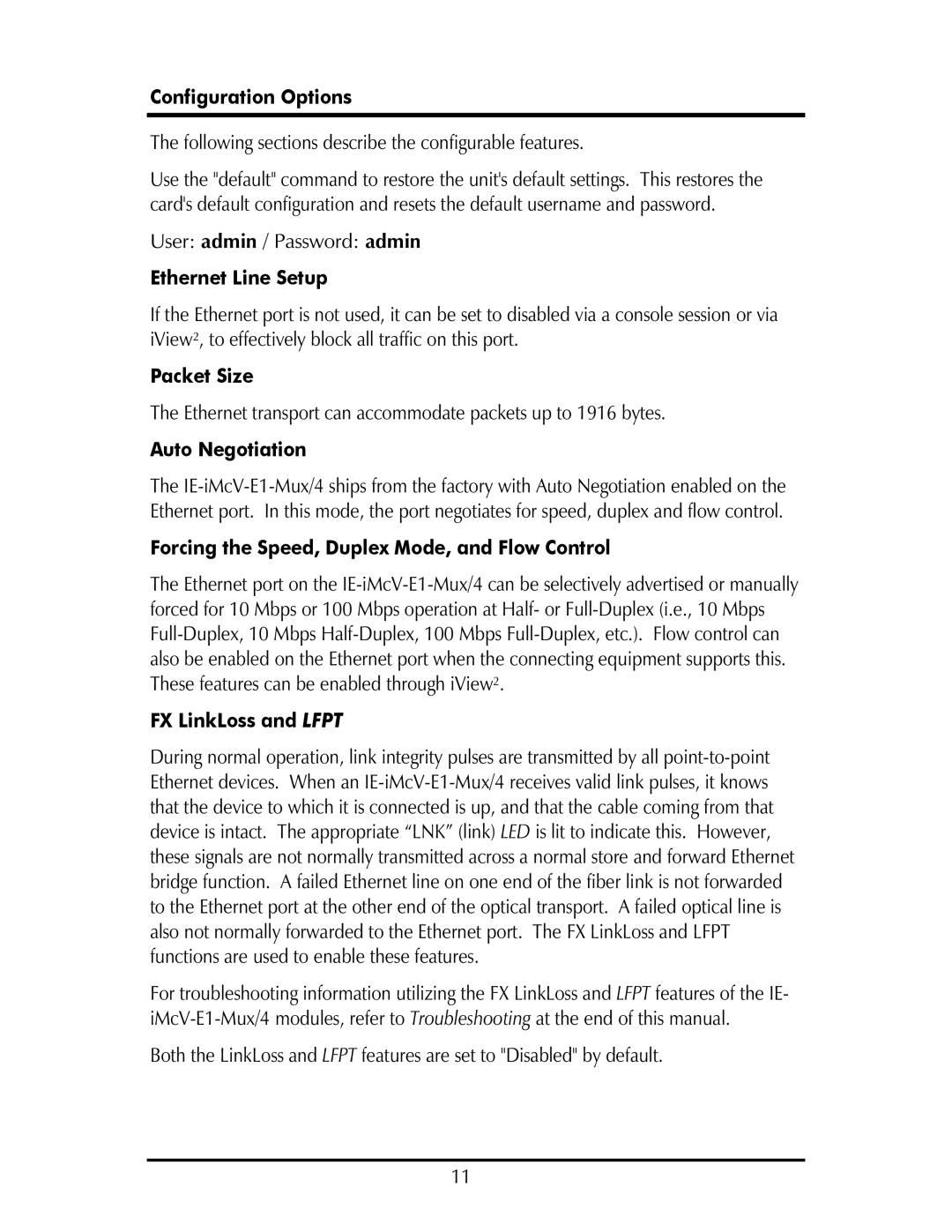The following sections describe the configurable features.
Use the "default" command to restore the unit's default settings. This restores the card's default configuration and resets the default username and password.
User: admin / Password: admin
Ethernet Line Setup
If the Ethernet port is not used, it can be set to disabled via a console session or via iView², to effectively block all traffic on this port.
Packet Size
The Ethernet transport can accommodate packets up to 1916 bytes.
Auto Negotiation
The IE-iMcV-E1-Mux/4 ships from the factory with Auto Negotiation enabled on the Ethernet port. In this mode, the port negotiates for speed, duplex and flow control.
Forcing the Speed, Duplex Mode, and Flow Control
The Ethernet port on the IE-iMcV-E1-Mux/4 can be selectively advertised or manually forced for 10 Mbps or 100 Mbps operation at Half- or Full-Duplex (i.e., 10 Mbps Full-Duplex, 10 Mbps Half-Duplex, 100 Mbps Full-Duplex, etc.). Flow control can also be enabled on the Ethernet port when the connecting equipment supports this. These features can be enabled through iView².
FX LinkLoss and LFPT
During normal operation, link integrity pulses are transmitted by all point-to-point Ethernet devices. When an IE-iMcV-E1-Mux/4 receives valid link pulses, it knows that the device to which it is connected is up, and that the cable coming from that device is intact. The appropriate “LNK” (link) LED is lit to indicate this. However, these signals are not normally transmitted across a normal store and forward Ethernet bridge function. A failed Ethernet line on one end of the fiber link is not forwarded to the Ethernet port at the other end of the optical transport. A failed optical line is also not normally forwarded to the Ethernet port. The FX LinkLoss and LFPT functions are used to enable these features.
For troubleshooting information utilizing the FX LinkLoss and LFPT features of the IE- iMcV-E1-Mux/4 modules, refer to Troubleshooting at the end of this manual.
Both the LinkLoss and LFPT features are set to "Disabled" by default.

